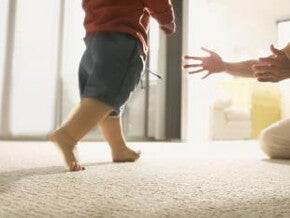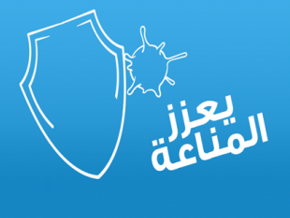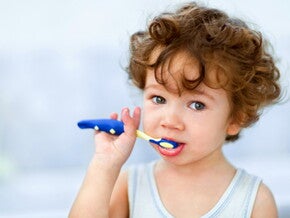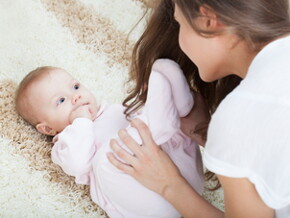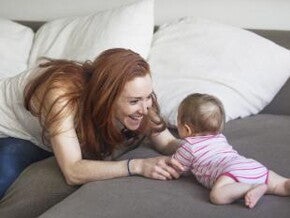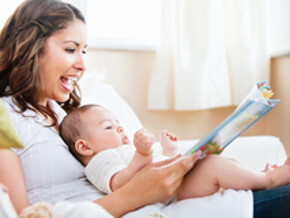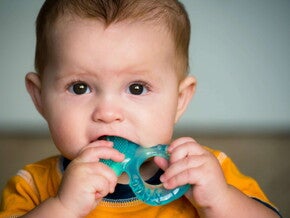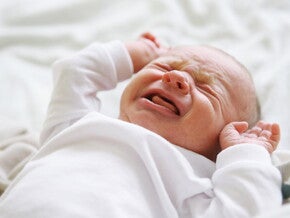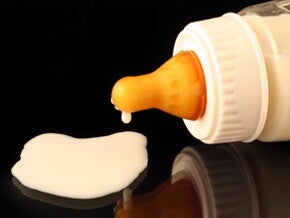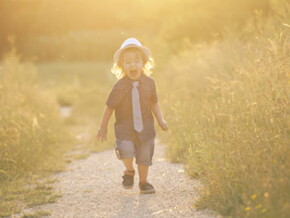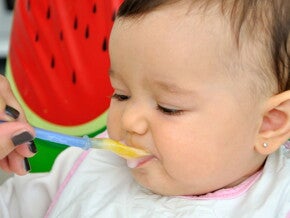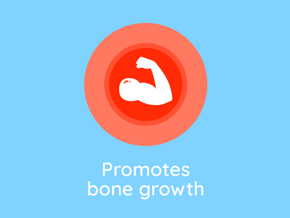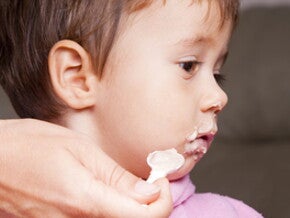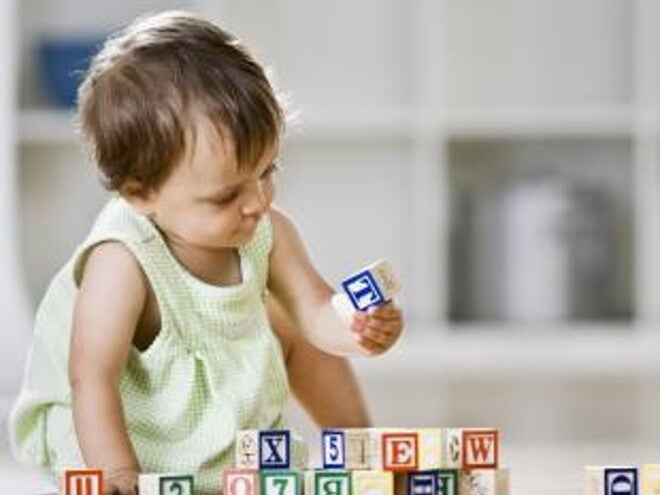
Playing is good for the body and mind!
Baby loves playing, romping around and running all over the place and is never tired. How can I channel my little one's energy by encouraging them?
Your little one is bursting with energy from dusk 'til dawn and loves making new discoveries. Your attention is therefore permanently focused on avoiding injury. However such enthusiastic activity is a sight for sore eyes, and the sign of normal psychomotor development. Spotlight on the importance of playing for children and some ideas for having fun together.
A game for every age
Babies love playing from very early on and above all to discover new games. Look how they laugh out loud when you play "Look who's here" with them at 3 months, they could go on for hours! At around 7 or 8 months, their new game is throwing their favourite toy on the floor over and over again. They think it's really funny to see you pick it up every time. They also love playing horsey on your knee or knocking over piles of building blocks.
At around 9 to 10 months, babies are often off on all fours! This gives them significant room to explore . They reach out to everything they see and pull themselves up on the furniture, an exploit to be proud of.
As soon as babies start walking they are in a hurry to discover new things, and there's no stopping them. Walking backwards, jumping, going up and down the stairs, each day brings new progress. Motricity development enhances their physical ability - balance, agility, tonicity - but also their sensory ability and self-confidence.
Come play with me
At around 6 months, a baby's attention span is of a few minutes only . They love playing puppets with their hands or look who's here, but there is no point playing with them for hours on end, as you may tire them out.
At around 2 years, a child's attention span is longer… on the condition that you do not always play the same game. You can use your imagination to alternate quiet games with more intense activities. Don't forget to take a break from time to time so they don't get overexcited.
At this age, children love playing with anything they find. Their greatest pleasure lies in banging on their building blocks with a spoon or playing picnic with plastic tubs from the kitchen. You sometimes wonder what the point of giving them real toys is!
To develop their agility you can build an obstacle course using cushions, toys, cardboard boxes for your child to climb over, crawl through and under. Ball games, swimming, hide and seek, the tricycle and bike riding are also very good activities for developing physical ability at this age.
Baby gyms
From 2 or 3 years (or even 1 year depending on the activity), your child can start attending the gym, or rather the baby gym ! This is a good way of enabling them to let off steam away from home if you are lucky enough to have such a club near to where you live. It obviously does not involve an intense workout or games with strict rules, but rather helps with the development of young ones, encouraging body awareness through a range of games and activities especially for little ones.
The aim of these sessions is not to turn your baby into a little champion, but to help them become more skilful and precise in their movements. In this way they develop their balance, coordination and reactivity, but also self-confidence, respect for others and a team spirit, all essential for their future!
Opinion
Joanna, Lou's mum
"My 18-month-old daughter goes to baby-gym every week. She's learnt lots of things like walking on a beam, trampolining and doing pirouettes. Who would think that she learnt to crawl just a few months' ago! She loves practising at home too and showing us how she's getting on."



